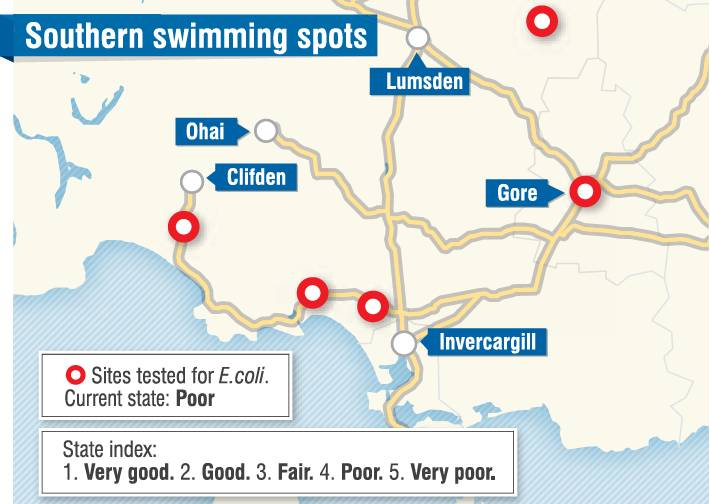Ki uta ki tai, from the mountains to the sea, the state of the environment depends on working to improve the quality of both land and water. Otago Daily Times reporter Laura Smith spoke to those delivering the philosophy and the people behind the Southland programme working to do just that.
Weaving the way for protecting wai.
That is the aim of those working on a a year-long collaboration between iwi and council.
Ultimately, they are seeking to safeguard the environment for generations to come.
Environment Southland (ES) chairman Nicol Horrell described water as the lifeblood of every nation.

It is how he depicted the importance of work to protect Southland’s land and water.
Late last month, the regional council approved, in principle, its goals on freshwater management.
These set the direction for the Regional Forum’s work in the next phase, that would develop advice for ES and the Te Ao Marama Inc Board on how to achieve these objectives.
The work was needed to be done to meet the requirements of the Government’s national policy statement for freshwater management.
Mr Horrell said some of the science was confronting and admitted the work could not be done overnight.
Therefore, this was a journey with achievable milestones set; it was about legacy, he said.
As a farmer himself, he used methods to mitigate environmental impact and, in the wake of community concern about the new government-set standards, urged it to define the problem they want solved, and solutions would be found.
"We know what the motivation is but it’s the wrong answer for the wrong question."
For Te Ao Marama chairman Stewart Bull, it was more than working to protect the environment.
For him, it was the collaborative effort between iwi and council, and providing a template for others to follow.
"We have spent a lot of years trying to build those relationships. I do believe that Murihiku is leading the way."

In terms of the environmental work he was involved in, people were more accepting something needed to be done.
"Instead of people talking about each other, we’re talking to each other now and trying to find solutions together."
He said the state of the water was used to measure the state of the environment as a whole.
In terms of finding common values, he said, they all had to give and take.
"We’re not just talking about the water; we’re talking about the community and how they live their everyday lives."
He said it was not possible to have a good economy without a good environment.
"I’m pretty happy we’re coming to a place of recognising Te Mana o te Wai."
It was recognition of environmental capital; investing a certain amount and only taking what that capital could return, he said.
He was appreciative of the recognition of treaty rights.
"Treaty does not belong just to iwi. It belongs to the people of New Zealand.
"It is the first contract ever signed in New Zealand and until there is compliance with that treaty, everything else is flawed after that until the treaty is honoured."
It gave him great pleasure that it was being recognised, and standing on equal terms with the Crown.
A concern for him was future generations not being able to carry out cultural practices such as mahinga kai.
"It’s not good to stand on your marae and go, "Don’t touch the kaimoana". Sometimes they think you’re joking ... but it’s not suitable for eating."
If you don’t use it, you lose it, he said, in reference to traditions and practices.
When speaking to Human Rights Commissioner Saunoamaali’i Karanina Sumeo last month, she told the Otago Daily Times Maori youth in Southland felt a disconnect from their heritage and identity.
Mr Bull said not being able to practise customs added to that.
"Are we going to be the generation with smarts to fix what needs to be fixed today? We shouldn’t be passing on problems to future generations."












